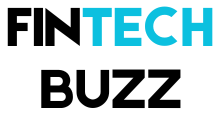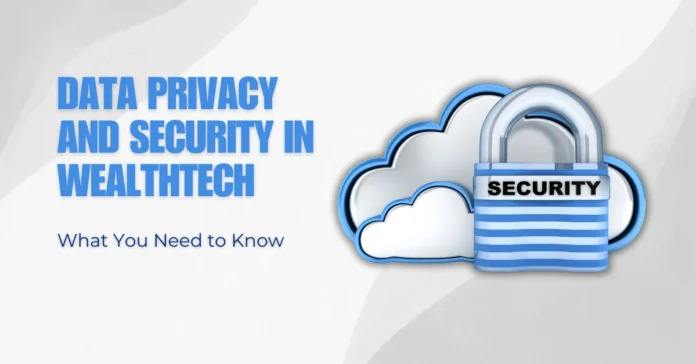WealthTech, the intersection of finance and technology, is revolutionizing the wealth management industry by providing digital platforms for investment management, financial planning, and portfolio optimization. However, with this digital transformation comes the responsibility to safeguard sensitive financial data. Data privacy and security are critical components of WealthTech, as they directly impact the trust that clients place in these platforms. In this blog post, we’ll explore why data privacy and security are crucial in WealthTech, the risks involved, and the steps being taken to ensure the protection of user information.
1. The Importance of Data Privacy and Security in WealthTech
WealthTech platforms typically handle vast amounts of sensitive information, including financial records, investment portfolios, personal identification details, and transaction histories. Given the nature of this data, any breach or misuse could have serious consequences, both for individuals and for financial institutions. Here’s why privacy and security are essential:
- Trust: WealthTech platforms rely on customer trust. If users feel that their data is not protected, they may be hesitant to use the platform or share their financial information.
- Regulatory Compliance: Financial institutions, including WealthTech providers, are subject to stringent regulations concerning data privacy and security, such as the GDPR (General Data Protection Regulation) in Europe and the CCPA (California Consumer Privacy Act) in the United States. Compliance with these regulations is not just a legal obligation, but a necessity for business credibility.
- Financial Protection: A breach of sensitive financial information could lead to identity theft, fraud, or financial loss. WealthTech companies must ensure robust security measures are in place to prevent unauthorized access and protect their clients’ assets.
2. Key Data Privacy and Security Risks in WealthTech
As WealthTech continues to evolve, so do the types of risks that platforms face. Understanding these risks is the first step toward mitigating potential issues.
- Cyberattacks: Hackers are always looking for vulnerabilities in digital systems, and WealthTech platforms are prime targets due to the high-value financial data they store. Cyberattacks such as phishing, ransomware, and data breaches can expose sensitive information and cause financial harm.
- Data Breaches: A breach can occur when an unauthorized individual gains access to customer data. This might happen due to weak security protocols, human error, or vulnerabilities in the platform’s infrastructure.
- Third-Party Vendors: Many WealthTech platforms rely on third-party vendors for services like cloud storage, payment processing, or analytics. If these vendors fail to meet high-security standards, they can become a weak link in the security chain.
- Insecure APIs: Application programming interfaces (APIs) allow different systems to communicate with each other. While APIs are crucial for integration and automation in WealthTech platforms, they can also be exploited by cybercriminals if they’re not properly secured.
- Internal Threats: Not all security threats come from the outside. Employees or insiders with access to sensitive information can inadvertently or maliciously expose data, highlighting the importance of robust internal controls and employee training.
3. Data Privacy Regulations in WealthTech
WealthTech companies must adhere to various data privacy regulations that are designed to protect users’ personal and financial data. Compliance with these laws not only helps mitigate the risk of fines but also builds trust with customers. Key regulations include:
- General Data Protection Regulation (GDPR): This European regulation is one of the strictest in the world, requiring companies to protect EU citizens’ personal data. It mandates transparency in how data is collected, processed, and stored. Companies must also offer users the right to access, correct, and delete their data.
- California Consumer Privacy Act (CCPA): A state law in the U.S. that enhances privacy rights for residents of California. The CCPA gives consumers more control over their personal data, including the right to know what data is being collected and to request its deletion.
- Payment Card Industry Data Security Standard (PCI DSS): For WealthTech platforms that process payments or store cardholder data, PCI DSS compliance is mandatory. It sets standards for securing credit card transactions and protecting cardholder data.
- Financial Industry Regulatory Authority (FINRA) Regulations: In the U.S., WealthTech firms that offer investment advisory services or asset management are required to follow FINRA’s security guidelines, which include protecting client information from unauthorized access.
4. Best Practices for Securing Data in WealthTech
Given the sensitive nature of the data handled by WealthTech platforms, strong data security practices are essential to safeguarding customer information. Below are some key best practices:
- End-to-End Encryption: All data, whether in transit or at rest, should be encrypted using robust encryption protocols. End-to-end encryption ensures that data remains secure even if intercepted by cybercriminals.
- Multi-Factor Authentication (MFA): MFA requires users to provide two or more forms of authentication (e.g., password and fingerprint) to access their accounts. This adds an extra layer of security and reduces the risk of unauthorized access.
- Regular Security Audits: WealthTech platforms should undergo regular security audits and penetration testing to identify vulnerabilities in their systems and address them before they can be exploited.
- Data Anonymization and Tokenization: Sensitive data can be anonymized or tokenized, meaning it is converted into a format that cannot be traced back to an individual unless paired with additional information. This helps mitigate risks in case of a breach.
- Employee Training: Staff members should be regularly trained on security protocols and how to recognize and handle potential threats. Ensuring that all team members understand the importance of data security is critical in minimizing human error.
- Secure APIs and Third-Party Integrations: Ensure that APIs used for integrating third-party services are secured and regularly tested for vulnerabilities. Additionally, vet third-party vendors to ensure they meet your platform’s security standards.
- Data Backup and Recovery: Regular backups should be conducted to ensure that data can be restored in the event of an attack or system failure. A solid data recovery plan should also be in place to minimize downtime and business disruption.
5. The Future of Data Privacy and Security in WealthTech
As technology advances, so too do the tools and techniques used by cybercriminals. WealthTech platforms must constantly evolve to stay ahead of emerging threats. Some key areas to watch for the future include:
- Artificial Intelligence and Machine Learning: AI and machine learning can be used to detect anomalies, predict cyber threats, and automate security measures. WealthTech platforms are increasingly integrating these technologies to improve threat detection and response times.
- Blockchain Technology: Blockchain’s decentralized and immutable nature makes it an attractive solution for enhancing security in WealthTech. It can be used for secure transactions, data storage, and authentication processes.
- Biometric Security: The use of biometric authentication (fingerprints, facial recognition, etc.) is expected to grow, providing an added layer of security while ensuring a seamless user experience.
- Privacy-Enhancing Technologies (PETs): The development of PETs, such as homomorphic encryption (which allows computations on encrypted data), could offer new ways to protect sensitive financial data while still enabling analysis and decision-making.
Conclusion
As WealthTech platforms continue to innovate and expand, data privacy and security will remain a top priority. Ensuring the protection of sensitive client information not only helps WealthTech firms comply with regulations but also strengthens client trust, fosters long-term relationships, and safeguards their reputation. By implementing robust security measures, staying ahead of regulatory changes, and embracing emerging technologies, WealthTech companies can create a secure and privacy-respecting environment for their users. As the industry continues to grow, data security will be the foundation on which the future of wealth management is built.
#WealthTech #DataPrivacy #CyberSecurity #FinancialSecurity #WealthManagement #FinTech #DataProtection #PrivacyInTech #DigitalSecurity #SecureFinance


